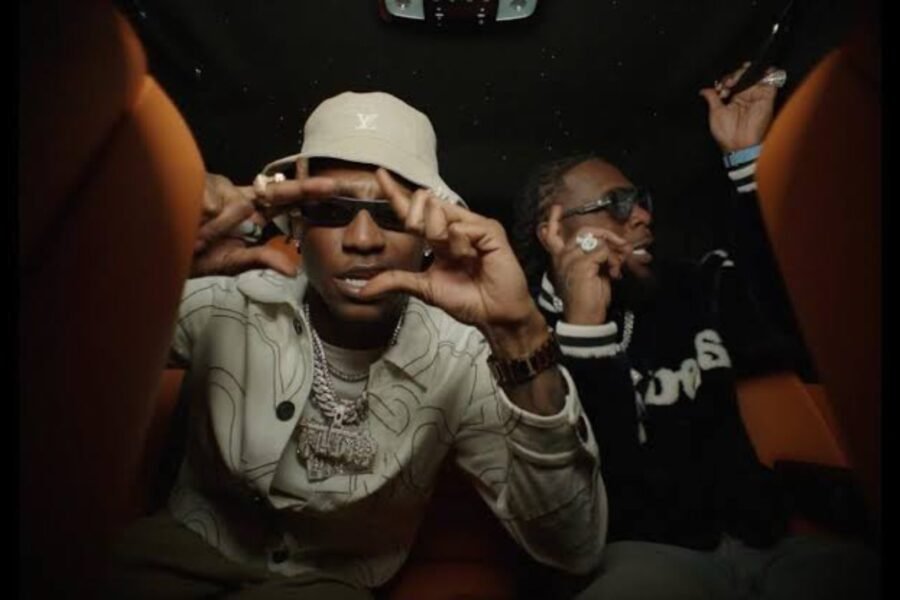By Ayorinde Williams
A couple of weeks ago, I was watching a music video from an emerging Nigerian artist on YouTube. Crisp visuals, proper storytelling, decent promotion. But I couldn’t help noticing the same pattern; the algorithm didn’t push it. Views were crawling. The comments? Mostly Nigerians, a few Ghanaians, some random from Poland saying “🔥🔥.”
I clicked on similar videos, and again, the ones that got algorithm love were mostly foreign-backed by Western labels, powered by playlists and trends that weren’t ours.
It made me pause.
How did we get here?
How did we build such a vibrant music scene, only to depend entirely on platforms we don’t own to share it with the world?
This isn’t a guilt trip. It’s a wake-up call.
We’ve Become Tenants in Someone Else’s Digital Empire
Let’s be honest. The average African creative is doing the equivalent of opening a store in someone else’s building, hoping customers show up, while the landlord controls the lights, traffic, rent, and door policy.
Spotify determines what song gets playlisted. Instagram decides if your video should go viral or not. YouTube pushes content based on trends set in New York and Los Angeles. Meanwhile, African stories that are raw, complex, and beautiful are squeezed through an algorithm that doesn’t fully understand the nuances of our culture.
If your sound doesn’t fit what the “For You Page” recognizes as trendy, it gets buried. If you don’t boost your post, good luck reaching even your own followers. And if these platforms crash or ban your region tomorrow, many artists will lose their entire audience overnight.
Without Data, Music Would Be Guesswork. With Biased Data, It’s Still Dangerous
Let’s be clear, data is powerful. It’s not the enemy. Without it, A&Rs wouldn’t know what city to plan a tour in. Independent artists wouldn’t know what song resonates most with their fans. Marketers wouldn’t know which audience to retarget.
But there’s a catch.
Most of the data that drives African music is owned by platforms outside the continent. It’s collected, processed, and optimized by companies who, respectfully, are not building for us. So even when artists are “data-driven,” they’re playing with information that’s already filtered by someone else’s rules, someone else’s bias, someone else’s pocket.
Take TikTok, for example. It’s arguably the biggest song-discovery tool in the world right now. But its algorithm prioritises content based on behaviour in dominant markets like the US and UK. That’s why a Gen Z in Enugu might have to search five hashtags deep to find trending Igbo music, but will get Charli D’Amelio’s dance challenge on their home feed with zero effort.
What Data Has Helped and What It Hasn’t
Data isn’t all bad. In fact, here’s what it has helped with:
Targeted promotions: Asake doesn’t just show up in Atlanta or Houston by chance. Streaming data tells his team exactly where demand is hottest, and that’s where the tickets fly.
A/B testing: Omah Lay teased different versions of “soso” on socials. The moodier one blew up in saves and shares, that’s the version they ran with.
Market expansion: Nonso Amadi tapping Majid Jordan wasn’t random. Canadian stream stats showed he had growing love there, the collaboration (Different) just sealed it.
But here’s what it hasn’t solved:
Visibility inequality: An upcoming artist from Jos with amazing talent might never be heard unless they hack the system or get cosigned.
Monetization gaps: Streams don’t pay the same across regions. You can get 100k streams in Nigeria and earn way less than someone with 10k streams in the US or Sweden.
Cultural relevance: Numbers may tell you what’s popular — not what’s meaningful.
How Emerging Artists Can Flip the Script
So what do we do? How do we stop drowning in algorithms and start breathing on our own terms?
Here are a few ideas:
Start collecting your own data: Use tools like Linktree analytics, Mailchimp, or Google Forms during fan engagement. Don’t just rely on what Instagram tells you.
Create your own feedback loops: Instead of just checking Spotify for Artists, run polls on WhatsApp groups, Discord channels, or your own community. Find out directly from fans what’s hitting.
Collaborate with local platforms: Platforms like Boomplay, Audiomack Africa, Mdundo, and Aftown are building with African users in mind. Leverage them, give feedback, and push your audience there too.
Control your funnel: Build a simple website, drop exclusive content via email lists, and set up merch or ticketing independently. Don’t let one app be your entire career.
Tell richer stories: Data can tell you what your fans like, but it’s your job to remind them why they care.
Yes, We Need Algorithms — But We Need Ours
Imagine an algorithm built with African slang, rhythm patterns, cultural references, and economic context in mind. Imagine a platform that doesn’t punish you for using pidgin English. Or one that understands why gospel drill from Abuja deserves just as much attention as UK grime. Or that a 2-minute skit in Yorùbá or Urhobo isn’t “low engagement content,” but a cultural gem.
We don’t just need new tools. We need new philosophies, African-first tech that respects creativity and context.
This isn’t about cancelling global platforms. Use them. Milk them. Utilise them to the fullest. But don’t get comfortable. Because until we build our own pipes, we’ll always be chasing the water. If tomorrow, any of these apps change their rules, tweak their algorithm, or block your country (like Twitter did to Nigeria once), how would you reach your audience? What would happen to your art?
If we don’t build our own platforms, we’ll keep drowning in someone else’s algorithm. And honestly? We deserve better. Let’s build.


